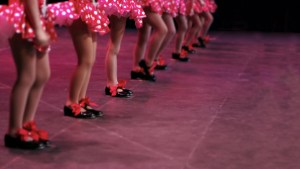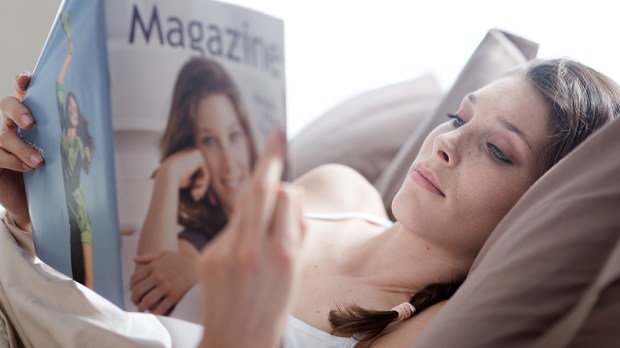On billboards and magazine covers, we are accustomed to seeing super-slim young models with porcelain skin, glossy hair, and many qualities that — let’s face it — most women do not have (sometimes even those models, whose lives revolve around maintaining their looks, do not actually have them either).
For decades, that formula has worked … probably because we aspired to look that way, or because of social standards that we internalized or that were imposed on us. But in recent years, we women have been rebelling a bit against these models of perfection, looking for something more genuine and closer to our reality. Although there is still a long way to go, there is a desire to identify more with the models in terms of age, body shape, race, and even religion and culture.

Read more:
Why moms like me are pulling their daughters out of dance class
Some call them “real” models, but I confess that I do not like that term because the typical models are not exactly extraterrestrials. It’s not their fault they won the genetic lottery.
Where’s the middle?
Body type is what we tend to talk about most when we get into issues of relatability. Today, most models are required to have a healthy weight (which, although far from the average, is still an important step). And now there are also many plus-size models who are revolutionizing the fashion industry.
The most emblematic case is Ashley Graham, who is the face of several brands, walks in the shows of big labels at fashion weeks, was co-host of the Miss Universe pageant, and even wrote a book in which she speaks precisely about how we women must love ourselves as we are, with or without cellulite (which, by the way, she is not afraid to show in her Instagram account).
However, I think it is still a very polarized issue: there is fashion for thin people and fashion for bigger people. But what about those of us who have an average or regular weight? In many countries, we are the majority. Where are the size M models?
There is a similarly unequal distribution when it comes to age. On the one hand, there are 15-year-old girls promoting moisturizing creams and, on the other hand, some (very few) women over 60 are marketing anti-wrinkle creams. It’s great that we’re finally getting past having 20-year-old girls promoting products to fight signs of age that they’ve never had, but women ages 30 to 50 are still underrepresented. And ironically, we are the ones who invest more in fashion and beauty products because we have the disposable income for it.

Read more:
Why I’m teaching my young son good old-fashioned chivalry
It’s almost as if in the world of marketing is suffering some kind of a mid-life crisis. The marketers want to avoid these “middle-age” decades at all costs instead of looking at the wonderful aspects of a time when women can still enjoy some things that are typical of youth but in a more mature way and in the fullness of their economic independence.
What’s going on here? Several studies suggest that it has to do with the fact that public relations and marketing companies are increasingly staffed by executives between the ages of 25 and 28, where the difference between being young and old is part of their experience, and is taken to extremes.
In favor of diversity
Regarding race, it’s no secret that most models are white. And not all brands do what Benetton does. Although there has been an increase in Black women models, the truth is that they are still underrepresented, as are Latinas, Asians, and other ethnicities. They tend to be segmented by countries, even in a theoretically globalized world.
One must make an exception with Asia, because on this continent, studies show that people buy less if there are Western models in the advertising.
As for religion, still a taboo subject, even less progress has been made. Yet, it’s beginning to stick. In the 1990s, no one wondered if Naomi Campbell was Jewish or if Cindy Crawford was Catholic. The faith of the models mattered little and was not something they professed. But currently, Muslim models, for example, are taking their place in fashion and have made headlines for appearing on the catwalks with their headscarves.
That’s because lifestyle is what is setting the tone especially in social networks, and this also includes beliefs, the foods people eat, how they travel, and even the kinds of people they spend time with.
Working on the interior
Definitely, there is a growing tendency to learn to enjoy how we look and experiment with it. The concept of beauty has changed in a movement that focuses on working on your interior and being happy with who you are in order to project a “better” exterior.
Women come in all sizes, ages, skin tones, cultural backgrounds, and religions, so we want to broaden the spectrum and see images of women that reflect that diversity, women with whom we can identify. Obviously, the inspirational part will continue to play a fundamental role (we all enjoy that creative and glamorous halo of magazine publishers) and there is nothing wrong with that, but seeing more wrinkles, curves, and skin colors would not be bad at all. After all, it is what we see in the mirror and, dear fashion designers, we are learning to be happy with it.
This article wasoriginally published in the Spanish edition of Aleteia and has been translated and adapted here for English speaking readers.

